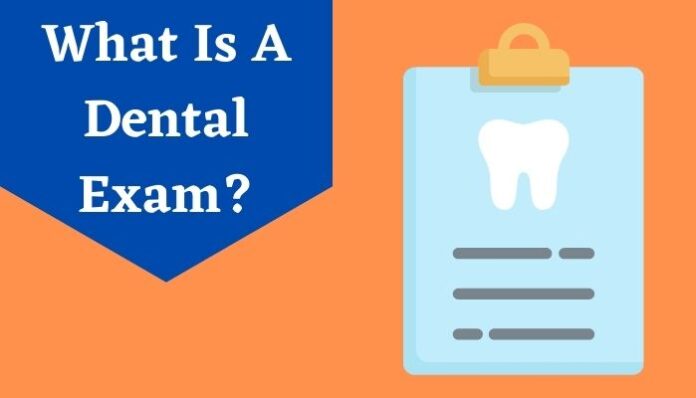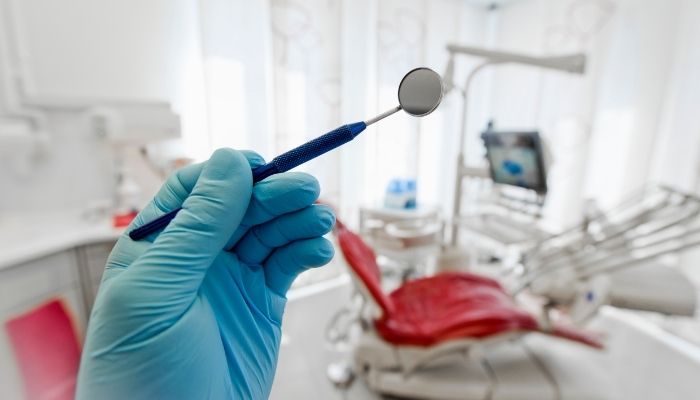These days many people are concerned about their health, but often ignore oral health. Oral health or oral hygiene plays a pivotal role in your overall wellness. Thus, experts often recommend doing dental check-ups twice a year to evaluate your oral health conditions. Routine dental exams are the most effective way of identifying abnormalities in the mouth and preventing them from thriving. But many people don’t have adequate knowledge regarding the benefits of a dental examination. They don't even know what to expect from a regular dental care check-up. Here, we are going to discuss what a dental exam is, why it is performed and what to expect from a regular check-up.
What Dental Exams Are Required?
Dental exams are the most effective ways in finding out tooth decay, gum disease, and other oral health problems early. Once the problems are identified, the doctors will adopt the right dental treatment approaches. Dental exams also educate people regarding how to take care of their teeth and gums.Purpose of a Dental Exam
The experts recommend that every adult and child should get a dental exam twice a year. If you are suffering from inflammation, bleeding gums (known as gingivitis), or other gum diseases, your dentist will need further examination to identify the root cause. Adults with gum disease may need to visit a dentist three to four times a year. Regular dental exams may prevent severe gum diseases called periodontitis. Periodontitis is a gum infection that can lead to tooth loss.Babies should visit a dentist within six months of getting their first tooth, or by 12 months of age. After that, they must be checked up every six months. But you may need to take your child more frequently if the dentist finds any problem related to tooth development or other oral health issues.
7 Things to Expect From a Regular Dental Check-up
Let’s take a look at the general dental check-up procedures.1. Medical History Intake
Once you reach your dentist’s chamber, he will ask you a few questions to identify the exact condition of your oral health. You need to tell him all information regarding what medicines you are taking, any therapies or remedies in progress, allergies, and whether you smoke or consume alcohol.Once you answer all the questions, your dentist will enquire about previous dental procedures, surgeries, and your compatibility with anesthesia. After evaluation, your dentist will make an imperative first step by offering you a detailed dental treatment plan.
2. Investigations
Once all information is accumulated, your dentist will move to the second step. This means he will investigate your teeth, gums, jaw, and supporting structures thoroughly. Here are some of the steps that your dentists will use to look for the examination.3. Cleaning
Once you sit in a chair, a bright overhead light will shine above you. The dentist will clean your teeth using small and metal dental tools. To remove plaque and tartar, he will scrape off your teeth. Once the plaque is accumulated on your teeth, it turns into tartar. Tartar is a hard deposit that is commonly found at the bottom of teeth.- Your dentist will do a flossing
- Using an electric toothbrush, he will brush your teeth
- He may apply a fluoride gel or foam to your teeth. Fluoride is a mineral that safeguards your tooth from decay. Tooth decay may lead to cavities or tooth loss
- Your dentist will give you some advice regarding how to take care of your teeth, including appropriate brushing and flossing technique
4. Dental X-ray
Dental x-rays are dental images that indicate cavities, gum disease, bone loss, and other problems that your dentist can’t see in a physical examination.During an x-ray, the dentist will
- Put a thick covering, called a lead apron, over your chest. This cover safeguards the rest of the body from radiation.
- Then, you need to bite on a small piece of plastic
- A scanner will be placed outside your mouth. The dentist will take some pictures while standing behind a protective shield or other areas.
5. Scrutinize the Results
Once the tartar is removed, the dentist will perform an x-ray to identify whether there are more dental defects or not. Dental x-rays will also help him to check the risks for future dental problems.6. Oral Cancer Screening
Oral cancer cases are rising exponentially. This has inspired many dentists to include an oral cancer screening during dental exams. Oral cancer is a life-threatening disease, but if detected early, you can combat this lethal disease.The treatments are also easy if the cancer is detected early. These days, dentists are highly experienced and trained to detect early signs and symptoms of oral cancer. To identify the signs of oral cancer, your dentist will thoroughly examine the area surrounding your jaws and also the soft tissues in your mouth.
7. Education
After scraping, cleaning, and checking for other abnormalities, your dentist will discuss various discoveries and concerns. If you have other serious problems, he may recommend another expert for your treatment, or else he will guide you on how to take care of your tooth to avoid future problems.The Bottom Line
The risks are minimal for a dental exam. Sometimes, cleaning may be uncomfortable, but it is not painful. Dental x-rays are safe for people as the radiation is very low.Oral problems may spread or turn severe if you don’t pay attention to them. Regular dental exams are required to monitor the overall condition of your oral health. Thus, visit your dentist twice a year to check for abnormalities and other oral health issues.



